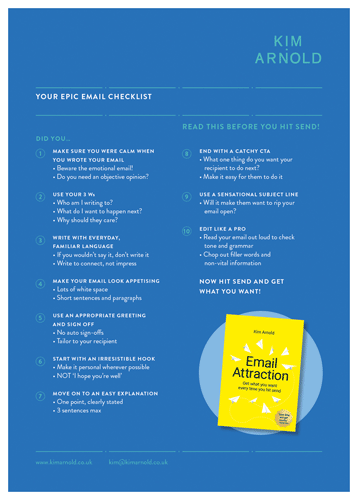Have you noticed this too?
People who’re fun, engaging and warm in person can turn into 19th century courtiers on email.
Here’s what I mean…
In person: Here’s the report.
On email: Please find attached the aforementioned report as requested.
In person: Let me know what you think.
On email: Kindly provide feedback at your earliest convenience.
In person: Hi, how are you?
On email: I hope this email finds you well.
The language is so formal that every email sentence could start with ‘prithee’ or end with ‘good sir’. (Try it.)
Yet we desperately cling to this kind of formal language like a safety blanket to make us feel more professional or clever.
In reality, however, stuffy phrases and words alienate. Studies show that using long words actually makes us appear less, not more intelligent, than we are.
So with every ‘aforementioned’, we shoot ourselves in the foot.
Here’s the thing: Formality packed its bags on day 2 of lockdown when the kids went feral and hair washing became a luxury.
And it walked out the door the first time we saw someone’s underwear drying on the rack behind them on Zoom.
It’s time to loosen up.
To move our writing into the 21st century. More sweatpants, less pantaloons. Or at least chinos, for goodness sake.
So how do we break the cycle of stiff, formal writing and engage instead of alienate?
Well, the standard advice here is to write like you speak.
Try not to use words in your writing that you wouldn’t say out loud.
But it’s weirdly hard to know how we sound. Especially if we’re working at home alone.
So try this:
- Imagine you’re physically in front of the person you’re writing to.
- What would you say to them?
- Go on, say it out loud.
- Record yourself on your phone.
- Play it back and transcribe it.
- Edit a little if you need to.
- And use that in your email.
It’s probably much shorter, warmer and more engaging. And it’s more likely to get a response.
Try it today and let me know how you get on!


